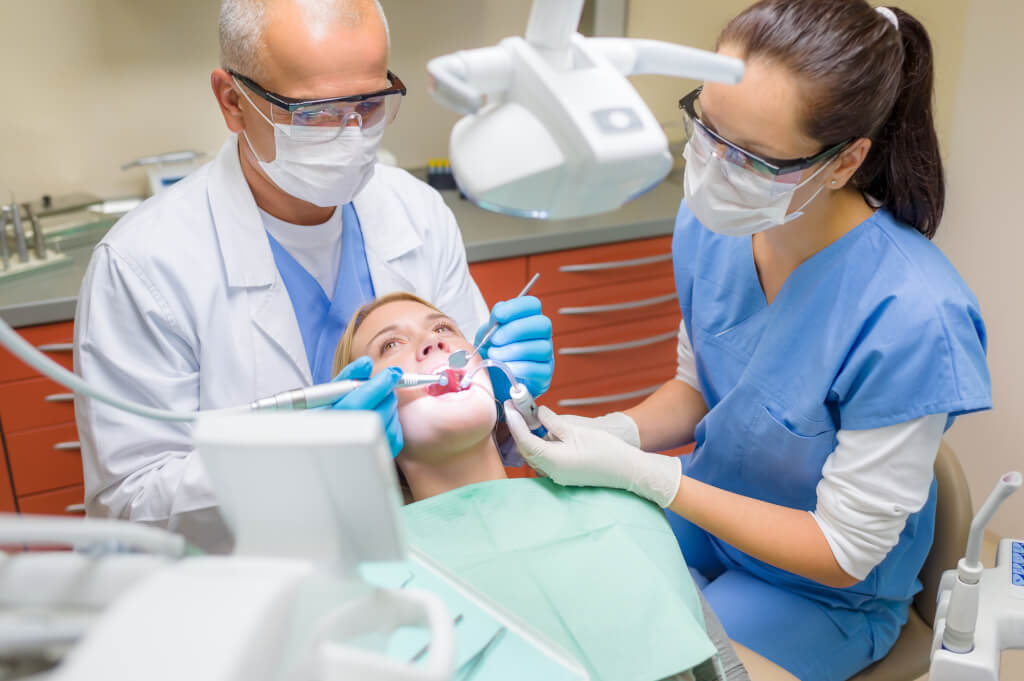Maintaining good oral health is essential not only for a bright smile but also for overall well-being. Poor oral hygiene can indeed lead to various dental problems, including cavities, gum disease, and bad breath. Furthermore, research has shown that oral health is linked to heart disease, diabetes, and other systemic conditions. That is why it is essential to schedule regular appointments with your dentist in Omaha, NE.
To help you keep your teeth and gums in top shape, we’ve gathered some invaluable tips from top dentists. Here’s your ultimate guide to maintaining oral health.
1. Brush Your Teeth Properly
Brushing your teeth twice a day is a fundamental aspect of oral hygiene, but doing it correctly is just as important. Try to use a soft-bristled toothbrush and fluoride toothpaste. Hold your toothbrush at a 45-degree angle to your gums and use gentle, circular motions. In fact, you should make sure to brush all surfaces of your teeth, including the front, back, and chewing surfaces. Don’t forget to brush your tongue or use a tongue scraper to remove bacteria and freshen your breath.
In fact, dentists recommend spending at least two minutes brushing your teeth each time. You can also consider using an electric toothbrush, which can be more effective at removing plaque compared to manual brushing.
2. Floss Daily
Flossing is crucial for removing food particles and plaque from between your teeth and along the gum line, which are usually the areas your toothbrush can’t reach. Using about 18 inches of dental floss, wind most of it around your middle fingers and leave a few inches to work with. Gently slide the floss between your teeth, curving it into a C-shape around each tooth and moving it up and down.
3. Use Mouthwash
Mouthwash can be a valuable addition to your oral care routine. It helps reduce plaque, fight bacteria, and freshen your breath. Always try to choose an antimicrobial or fluoride mouthwash for added benefits. Swish the mouthwash in your mouth for about 30 seconds after brushing and flossing.
4. Maintain a Healthy Diet
What you eat has a significant impact on your oral health. A balanced diet rich in fruits, vegetables, lean proteins, and whole grains provides essential nutrients for healthy teeth and gums. In fact, foods high in calcium, such as dairy products, leafy greens, and almonds, are particularly beneficial for strong teeth.
You should also limit your intake of sugary and acidic foods and drinks, as they can erode tooth enamel and lead to cavities. Instead, opt for water, milk, and unsweetened beverages. Chewing sugar-free gum after meals can also help stimulate saliva production, which naturally cleanses the mouth and neutralizes acids.

5. Avoid Tobacco Products
Smoking and using other tobacco products are detrimental to your oral health. They increase the risk of gum disease, oral cancer, and tooth loss. Tobacco use also causes bad breath and stains your teeth. If you smoke or use tobacco, seek support to quit. Your dentist will also be able to provide resources and recommendations to help you kick the habit for good.
6. Visit Your Dentist Regularly
Regular dental check-ups and cleanings are essential for maintaining oral health. Dentists recommend scheduling visits every six months, although some individuals may need more frequent appointments based on their dental needs. During these visits, your dentist will examine your teeth and gums, perform professional cleanings, and address any potential issues early on.
7. Protect Your Teeth
If you participate in contact sports or activities with a risk of dental injury, then try to wear a mouthguard to protect your teeth. You should also avoid using your teeth as tools to open packages or bottles, as this can cause chips and cracks. In addition, practice caution when eating hard foods, such as nuts and ice, to prevent damage.
Conclusion
Maintaining optimal oral health requires consistent effort and attention to detail. By following these tips from top dentists, you can ensure a healthy, beautiful smile for years to come. Remember, good oral hygiene is an investment in your overall health and well-being.

